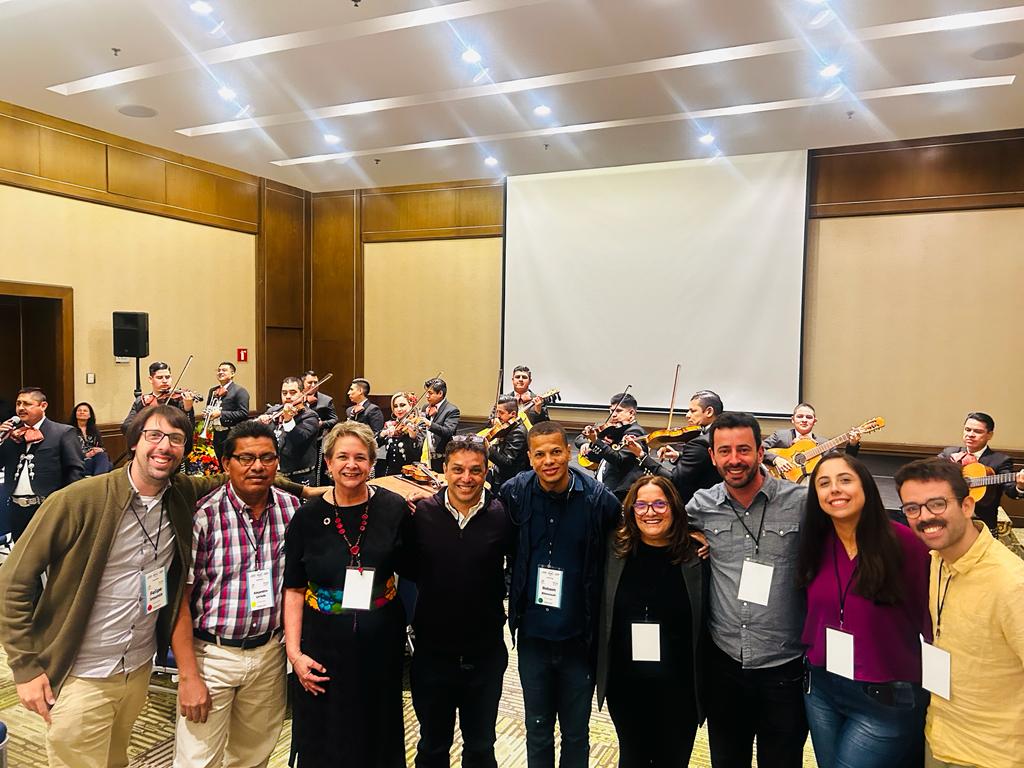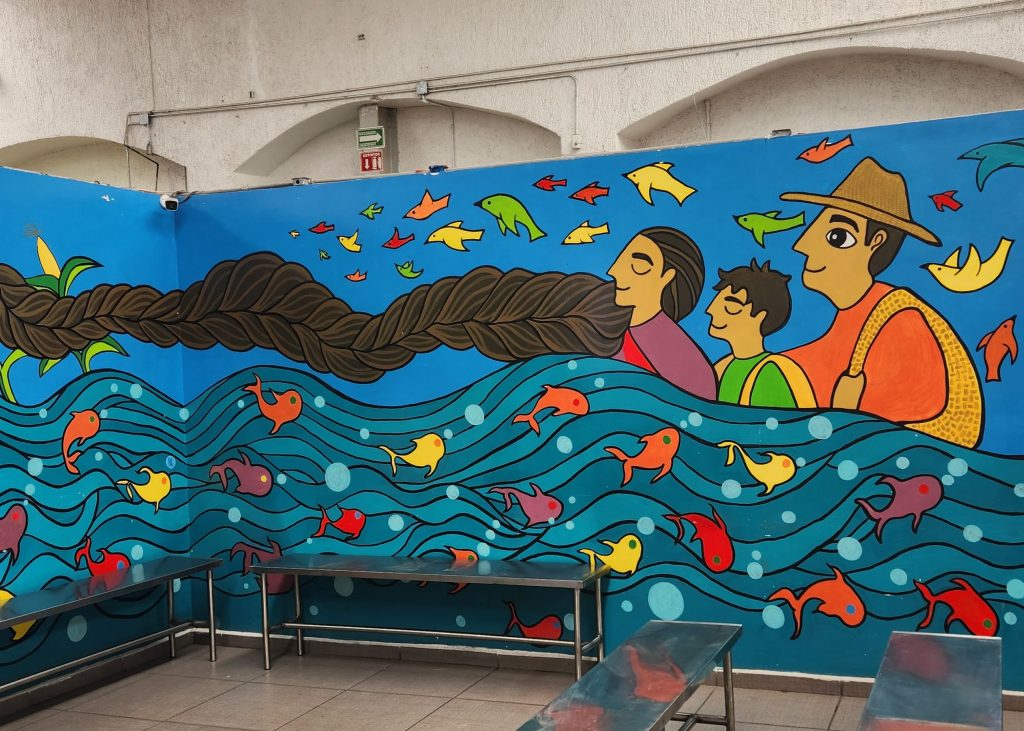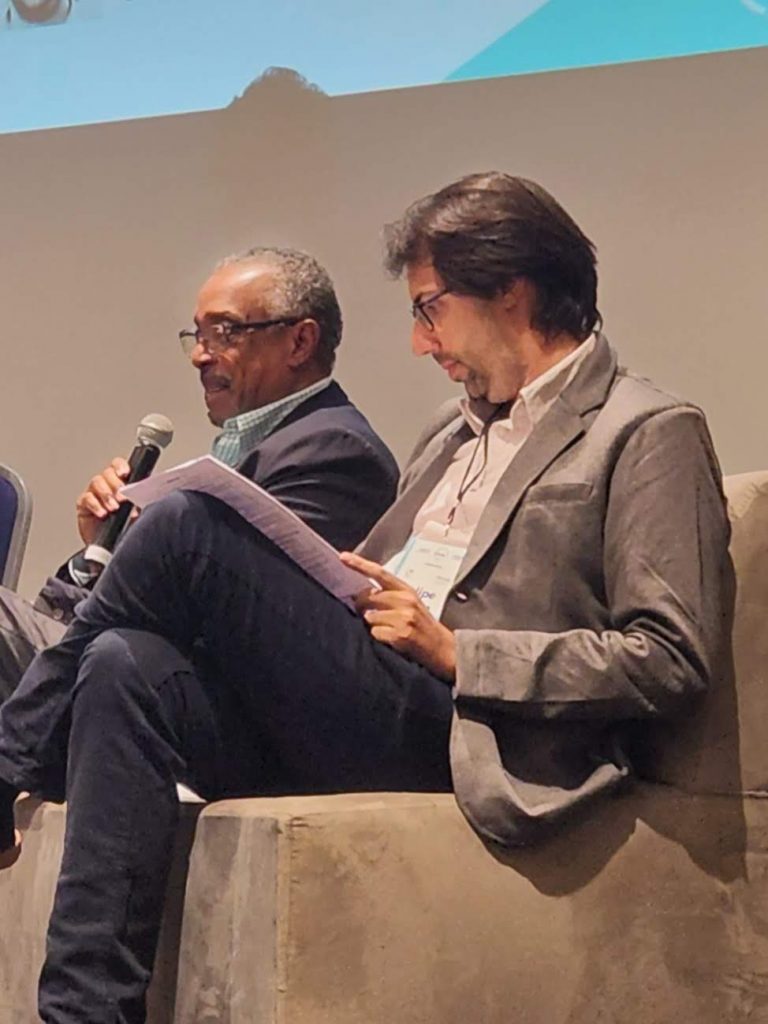Still little known in Brazil, the model of community philanthropy has been increasingly consolidated internationally as an important institutional arrangement for social development and addressing the various demands of the territories. According to a survey carried out by the Community Foundation Atlas, there are more than 1,800 community institutes and foundations in the world. Together, these organizations handle more than USD 5 billion every year.
 To discuss the different contexts, opportunities, and challenges of community philanthropy in the Americas, 119 guests from ten countries in South, Central, Caribbean and North America met in February in Guadalajara, Mexico. The Brazilian delegation included Felipe Groba, IDIS project manager, and six other representatives of Brazilian Community Institutes, all participants of the Transforming Territories – a program from IDIS: Instituto Baixada Maranhense; ICOM – Greater Florianópolis Community Institute; Espraiada and Tabôa Community Strengthening Institute.
To discuss the different contexts, opportunities, and challenges of community philanthropy in the Americas, 119 guests from ten countries in South, Central, Caribbean and North America met in February in Guadalajara, Mexico. The Brazilian delegation included Felipe Groba, IDIS project manager, and six other representatives of Brazilian Community Institutes, all participants of the Transforming Territories – a program from IDIS: Instituto Baixada Maranhense; ICOM – Greater Florianópolis Community Institute; Espraiada and Tabôa Community Strengthening Institute.
The event, promoted by CCA – Connecting Communities in America, an initiative of CF Leads (Community Foundations Leading Change), featured panel discussions and visits to social projects supported by Corporativa de Fundaciones – the community foundation of Greater Guadalajara – and which work directly on the issues of migrants and refugees, street children and community development. With a careful eye on diversity and the importance of everyone being able to express themselves in their mother tongue, there was simultaneous translation into four languages – Portuguese, English, Spanish and French..

During the plenary and parallel sessions, the participants discussed the contexts in which community philanthropy with a territorial focus takes place in their countries and realities. It became clear that there are regulatory and donation culture characteristics that differentiate the USA and Canada from the rest of the Americas, and that imply different levels of power and financial sustainability. On the other hand, all participants reinforced the need to strengthen organizations and collectives led by minority groups such as blacks and indigenous peoples, with the role of Community Foundations and Institutes – the CFIs – to make visible and support these groups in mobilizing material and technical resources and immaterial. According to Robson Bitencourt, Manager of the Territorial Development Program for Serra Grande and Tabôa surroundings
“the trip to Mexico was an immersion of observation, learning and exchanging knowledge in the field of philanthropy with other foundations in the Americas. It is important to broaden perceptions about the similarities and differences between what we do and what other organizations have also done, as well as the challenges and opportunities. The impression was left that we have opportunities to increase networking and leverage our actions”
The consequences of climate change on vulnerable populations were also at the center of the agenda, reinforcing the point that although the solution to this issue is global, the negative impacts will always be local and specific to each community. In order to unite efforts and address structural issues, the role of the CFIs as articulators of causes emerged, by creating local and even national coalitions to address major issues such as the lack of job opportunities, rural poverty, the issue of refugees, security and advocacy for rights and social justice..
 The theme of trust in civil society organizations (CSOs) and their role in expressing the plurality of voices in a territory permeated all discussions. Panelists and event participants reported successful cases of North American grantmaking foundations that have increasingly adopted the donation of free resources – free of charge and without restriction to projects – as a basis for its financial contributions, recognizing the excellence and expertise of social leaders in managing their organizations and allocating resources in order to generate more impact in the long term.
The theme of trust in civil society organizations (CSOs) and their role in expressing the plurality of voices in a territory permeated all discussions. Panelists and event participants reported successful cases of North American grantmaking foundations that have increasingly adopted the donation of free resources – free of charge and without restriction to projects – as a basis for its financial contributions, recognizing the excellence and expertise of social leaders in managing their organizations and allocating resources in order to generate more impact in the long term.
During their stay in Mexico, the Brazilian delegation took the opportunity to meet and exchange experiences with teams from Comunidar (the community foundation of Nuevo León), Comunalia (an organization that supports community foundations in Mexico) and Corporativa de Fundaciones, in addition to having visited in loco the community foundations of Morelos and Malinalco.
“The technical visits to community foundations reinforced the similarities between Brazil and Mexico, promoting numerous insights and possibilities between Brazilian and Mexican organizations. We found qualified and motivated teams working in networks to promote social justice and community development in their territories” commented Willian Narzetti, executive manager of ICOM.
Felipe Groba, leader of Transforming Territories, adds, recalling that the meeting contributed to the identification of development opportunities for Brazilian CFIs at different levels of maturity.
Transforming Territories Program
 Transforming Territories, an initiative by IDIS – Institute for the Development of Social Investment – with the Charles Stewart Mott Foundation to encourage the creation and strengthening of Community Institutes and Foundations in Brazil.
Transforming Territories, an initiative by IDIS – Institute for the Development of Social Investment – with the Charles Stewart Mott Foundation to encourage the creation and strengthening of Community Institutes and Foundations in Brazil.


